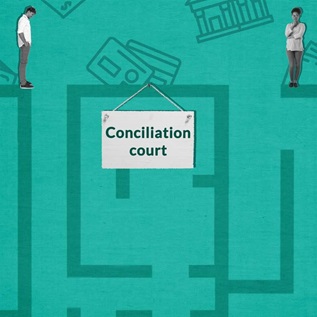Safe Credit Card Standards
Policy Recommendations for Protecting Credit Cardholders
QUICK SUMMARY
Credit card companies have powers unique in the world of retail lending. After a consumer has agreed to the terms of a credit card account and used the card to make purchases or obtain cash advances, the card issuer may lawfully rewrite the agreement or demand a higher rate of interest, even on funds previously advanced. In a one-year period between 2007 and 2008, issuers used these powers to raise interest rates on nearly one quarter of cardholder accounts.
Executive Summary
Credit card companies have powers unique in the world of retail lending. After a consumer has agreed to the terms of a credit card account and used the card to make purchases or obtain cash advances, the card issuer may lawfully rewrite the agreement or demand a higher rate of interest, even on funds previously advanced. In a one-year period between 2007 and 2008, issuers used these powers to raise interest rates on nearly one quarter of cardholder accounts. These added charges are not reflected in the advertised annual interest rate, which is the key price point consumers use when choosing credit cards. By rewriting agreements, and by giving themselves broad contractual rights to impose fees and rate increases automatically—practices that the Federal Reserve and other regulators have called “unfair and deceptive”—credit card issuers have rapidly expanded their businesses and billed cardholders tens of billions of dollars more per year.
In 2007, The Pew Charitable Trusts launched an effort, in partnership with the Sandler Foundation, to address growing concerns about abuses in the credit card industry. The project team, led by a former credit card company chief executive officer, researched consumer use of credit cards, conducted economic analyses of credit card practices and revenues, and closely reviewed hundreds of credit card products. In addition to this research and analysis, our team spent more than a year in discussions with over 20 credit card providers and consumer groups, with the goal of identifying balanced approaches to improving the safety of credit cards used by millions of Americans. As part of our research, we looked at all general purpose consumer credit cards offered online by the largest 12 issuers, which control more than 88 percent of outstanding credit card debt in America. As of December, 2008, this assessment covered more than 400 credit cards.
Our survey found that each credit card included one or more practices that qualify as “unfair and deceptive” under recently announced Federal Reserve guidelines. For example:
- 100 percent of cards allowed the issuer to apply payments in a manner which, according to the Federal Reserve, is likely to cause substantial monetary injury to consumers.
- 93 percent of cards allowed the issuer to raise any interest rate at any time by changing the account agreement.
- 87 percent of cards allowed the issuer to impose automatic penalty interest rate increases on all balances, even if the account is not 30 days or more past due. The median allowable penalty interest rate was 27.99 percent per year. 72 percent of cards included offers of low promotional rates which issuers could revoke after a single late payment.
The Pew Charitable Trusts will be producing a series of reports in the near future detailing our research and ongoing trends of credit card practices.
Our process of research, analysis and outreach led to several key conclusions, including:
- Current credit card practices place American cardholders at risk of sudden, potentially drastic price increases which can seriously impair a household's stability and spending power.
- Credit card issuers' profitability can be sustained with the adoption of transparent and predictable pricing practices.
- Strong, universally applicable laws provide the surest means of protecting cardholders and eliminating pressures for issuers to compete through unfair and deceptive practices.
In response, Pew offers a set of Safe Credit Card Standards that are designed to protect cardholders and promote a functional marketplace. The Standards are intended to support policy makers as they evaluate legislative responses to deceptive and dangerous industry practices. Several of the protections identified in our Safe Credit Card Standards are similar to new rules announced by the Federal Reserve and other regulators, but issuers will not be required to adhere to these rules until July 2010. Meanwhile, Pew's research indicates that the overwhelming majority of credit cardholders are vulnerable to unfair and deceptive practices now, which can add hundreds or thousands of dollars per year to the cost of an account.
This report summarizes the research, analysis and outreach which led to the development of the Standards and concludes with a set of recommendations urging immediate passage of the Credit Cardholders' Bill of Rights or similar legislation currently under debate in Congress. In future reports, the Pew Safe Credit Cards Project will provide additional data and analysis to help inform this important discourse.






